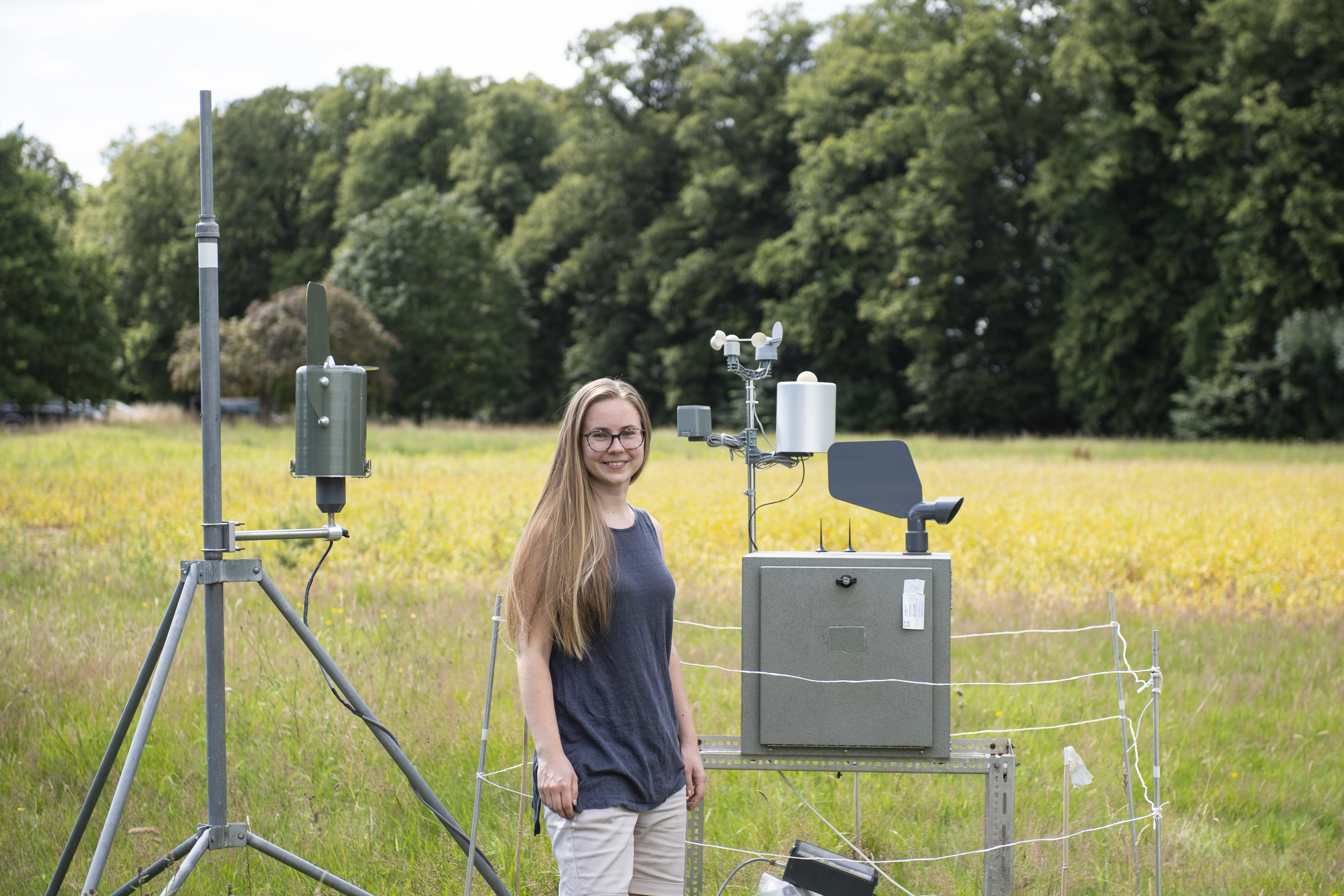The big picture: using wildflower strips for pest control
A Rothamsted researcher is appealing to tomato growers across the UK to send her leaves infected with powdery mildew.
It is part of research looking to design tools that can detect and identify fungal diseases within the glasshouse - before they take hold.
According to PhD student Anastasia Sokolidi, the system will eventually help growers decide when and what type of fungicide to spray.
“I am working on designing a DNA based assay that will be able to identify which type of powdery mildew is present, if at all. This technology will be used in combination with a spore sampler that will allow for early detection before it infects the plant.
“In addition, the DNA based assay developed from this project could also be used to analyze samples in the lab or be coupled with other samplers as a speedy diagnostic tool.”
The project, in collaboration with the University of Warwick and supermarket giant Waitrose, is looking to develop a DNA based test for airborne spores from several pathogens, including the two UK strains of tomato powdery mildews, Pseudoidium neolycopersici and Leveillula taurica.

“Tomato powdery mildews are one of the main reasons that tomato growers apply fungicide on their crops in the UK. By the end of the project, we hope to be able to better detect and control the spread of fungal pathogens of tomatoes in the horticultural industry,” said Anastasia.
She is asking tomato producers to send leaves with a substantial amount of powdery mildew on them, and in return, will be able to provide information as to which species of powdery mildew it is.
“I will need to know what region of the UK the leaves were collected from. This is necessary for me to improve my assay as it will allow me too to understand whether the assay is specific to the various strains of powdery mildews within the UK and how sensitive the assay is.”
Anastasia requests any growers wishing to take part to send infected green leaves tucked between kitchen roll.
For more information or to take part, please contact: Anastasia Sokolidi, BCP, Rothamsted Research, Harpenden, Herts AL5 2JQ, UK
Rothamsted Research is the longest-running agricultural research institute in the world. We work from gene to field with a proud history of ground-breaking
discoveries in areas as diverse as crop management, statistical interpretation and soil health. Our founders, in 1843, were the pioneers of modern
agriculture, and we are known for our imaginative science and our collaborative approach to developing innovative farm practice.
Through independent research, we make significant contributions to improving agri-food systems in the UK and internationally, with
economic impact estimated to exceed £3 bn in annual contribution to the UK economy. Our strength lies in our systems approach, which combines strategic research,
interdisciplinary teams and multiple partnerships.
Rothamsted is home to three unique National Bioscience Research Infrastructures which are open to researchers from all over the world:
The Long-Term Experiments,
Rothamsted Insect Survey and the
North Wyke Farm Platform.
We are strategically funded by the Biotechnology and Biological Sciences Research Council (BBSRC), with additional support from other national and
international funding streams, and from industry. We are also supported by the Lawes Agricultural Trust (LAT).
The Biotechnology and Biological Sciences Research Council is part of UK Research and Innovation, a non-departmental public body funded by a grant-in-aid
from the UK government.
BBSRC invests to push back the frontiers of biology and deliver a healthy, prosperous and sustainable future. Through our investments, we build and support a vibrant,
dynamic and inclusive community which delivers ground-breaking discoveries and develops bio-based solutions that contribute to tackling global challenges,
such as sustainable food production, climate change, and healthy ageing.
As part of UK Research and Innovation (UKRI), we not only play a pivotal role in fostering connections that enable the UK’s world-class research and innovation system
to flourish – we also have a responsibility to enable the creation of a research culture that is diverse, resilient, and engaged.
BBSRC proudly forges interdisciplinary collaborations where excellent bioscience has a fundamental role. We pioneer approaches that enhance the equality, diversity,
and inclusion of talent by investing in people, infrastructure, technologies, and partnerships on a global scale.
The Lawes Agricultural Trust, established in 1889 by Sir John Bennet Lawes, supports Rothamsted Research’s national and international agricultural science through the provision of land, facilities and funding. LAT, a charitable trust, owns the estates at Harpenden and Broom's Barn, including many of the buildings used by Rothamsted Research. LAT provides an annual research grant to the Director, accommodation for nearly 200 people, and support for fellowships for young scientists from developing countries. LAT also makes capital grants to help modernise facilities at Rothamsted, or invests in new buildings.